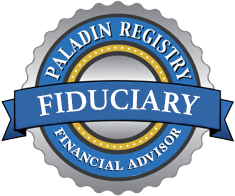Impressive Credentials?
Or Impressive Sounding Credentials?
Some credentials represent impressive achievements. Others do not. Before accepting guidance from an advisor, resolve to understand what his or her credentials really represent. Many of the impressive sounding credentials sported by financial advisors might represent less than you think. In some cases, it might be far less.
For example, if you needed legal advice regarding your estate, would you turn to an attorney, or would you regard someone who is “Board Certified in Estate Planning” as more competent? One credential may sound as good as the next, but the differences in what they actually represent can be astounding.
An attorney may study for years to obtain a license to practice law and may, after meeting certain educational and experience requirements, become Board Certified in a particular field of law. In contrast, the “Board Certified in Estate Planning” designation is issued by a private organization and it requires a mere 45 hours of study*.
To see more examples of impressive sounding credentials, click here.
The Financial Industry Regulatory Authority has compiled a lengthy list of advisor credentials. To view it, click here.
Requires the Adobe Acrobat Reader. To get the free reader, click here.
While this designation sounds confusingly similar to an attorney who is Board Certified in estate planning, the two are in no way comparable.
Sadly, the barriers to entering the “financial advice” industry are disappointingly low. Consequently, the industry’s ranks are swollen with advisors who have minimal financial background. Because of this and the fact that success requires advisors to establish credibility with their clients, an entire credentialing industry now exists to satisfy the industry’s demand for impressive sounding, but easily obtainable credentials.
* According to the National Association of Securities Dealers website as of October, 2005.



